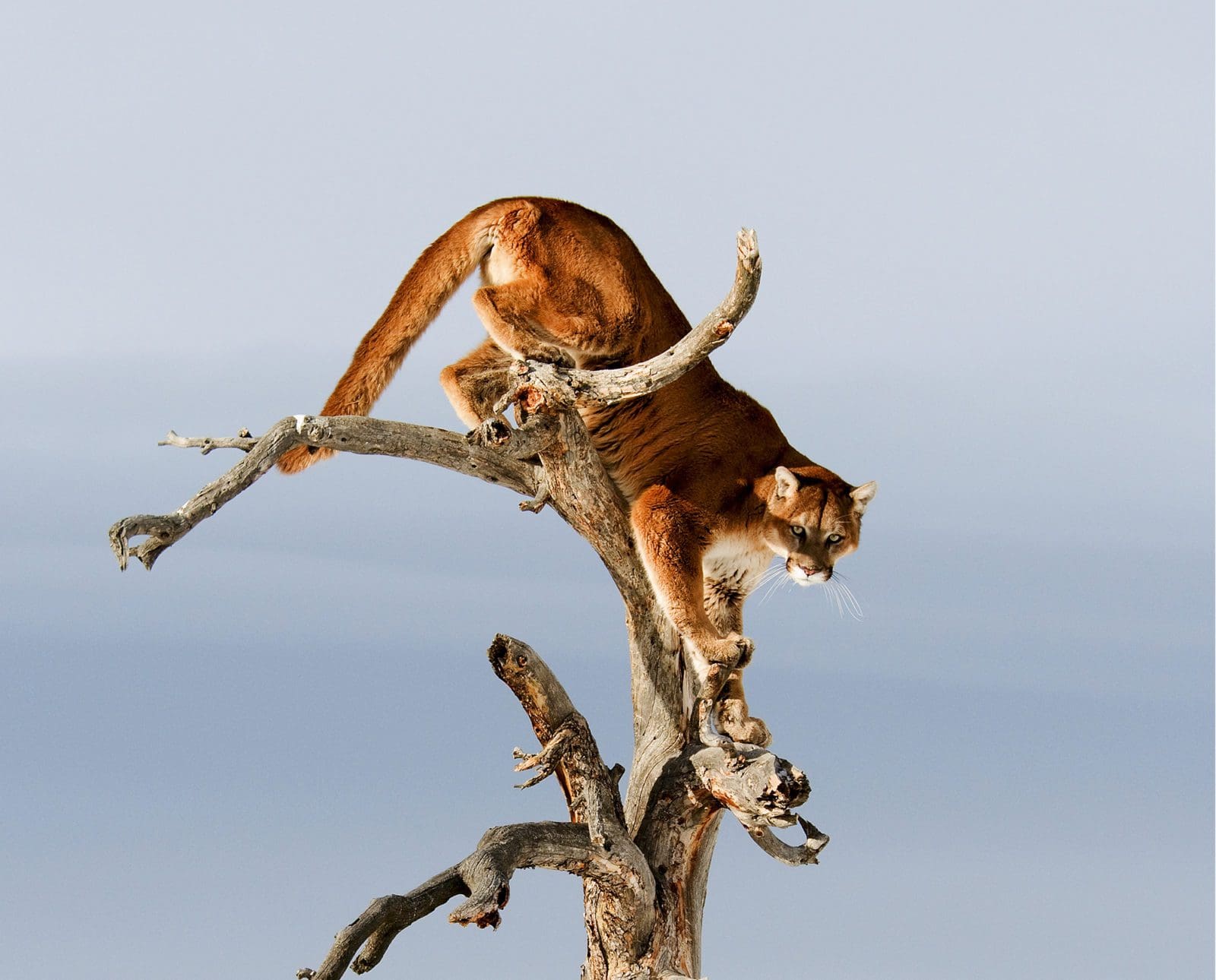Home » Hunting Policy » State Legislatures ‘Need to Leave Management Decisions to the Experts’ as Anti-Hunting Bills Intensify
State Legislatures ‘Need to Leave Management Decisions to the Experts’ as Anti-Hunting Bills Intensify

Andrew Spellman is an award-winning photojournalist and author. A 2017…
Colorado SB22-031 is the most recent example that the intensity of anti-hunting and anti-sportsmen bills is reaching new peaks, and it’s time for statehouses to leave management decisions to the experts
EDITOR’S NOTE: This is Part 1 of a two-part series that looks at how wildlife is managed on a state level, as well as the ramifications of management vis-à-vis law-making that isn’t based on science.
It seems as if 2021 and the first month of the new year have played host to an unprecedented number of attacks on hunting and traditions. Although some could argue this, the truth is, the number of anti-sportsmen bills—a term used by the Congressional Sportsmen’s Foundation (CSF)—are within the average range.
The readiness of state legislatures to push forward anti-sportsmen bills, however, is anything but normal.
“CSF tracks legislation nationwide as it relates to hunting, fishing, trapping, recreational shooting, and science-based wildlife management, which usually equates to between 4,000 and 5,500 bills per year,” said Ellary TuckerWilliams, CSF’s Rocky Mountain States Senior Coordinator and Internal Marketing Communications Liaison. “Comparing the exact number of anti-sportsmen bills from one year to another is a bit misleading given that the total bill volume varies significantly between odd- and even-numbered years based on legislative cycles. We prefer to look at these figures through the lens of the relative percentages of the bills that fall into the anti-sportsmen category compared to pro or neutral.
“Looking back at our records to 2017, the percentage of those introduced bills that were unfriendly towards sportsmen and women typically varies between roughly 14 percent and 19 percent, with 2021 being a little over 15 percent. Although the relative percentage of bills in the anti-category has remained relatively stable, there has been a demonstrated increase in the earnestness with which the legislatures work to advance them, and the pro-sportsmen percentage has been dropping off. Collectively this has resulted in many conservation organizations having to devote increased time, energy, and resources to playing defense in state capitols across the nation.”
Tucker Williams was at the forefront of the fight against Colorado SB22-031 for CSF, a bill that was defeated late Feb. 2. But SB22-031, introduced Jan. 12 by State Senator Sonya Jaquez Lewis, would have prohibited hunting or trapping bobcat and mountain lion, and would preemptively prohibited hunting or trapping Canada Lynx—designated as endangered by the state in 1973 and as threatened by the U.S. Fish and Wildlife Service in 2000. The move to add the lynx into the bill likely came from a 2018 recommendation by the USFWS to consider delisting the species due to recovered populations. Not only will the bill put the kibosh on a much-needed season, it will also put an end to a long-standing tradition of hounding.
Though the bill was killed, there still have been other pieces of anti-hunting and anti-sportsmen legislation introduced around the country such as the failed New Hampshire House Bill 1308 and two stalled bills in Vermont, H. 172 and 316, which warrant a discussion about state governments’ role in hunting seasons, bag limits, and more.
This hasn’t been a recent development
When pressed further about what has emboldened state legislatures to press anti-sportsmen legislation, TuckerWilliams explained that, despite the stability of the percentage of bills, the intents are much more “insidious and aggressive.”
“Instead of trying to take one apple at a time they seem to be coming for the entire tree,” she said. “I also want to highlight that these attacks don’t just happen within state legislatures, they are also happening during the regulatory process with the state Game and Fish Commissions and through ballot initiatives. Last year we lost trapping on public land in New Mexico thanks to SB 32. Oregon Initiative Petition 13 would, if successful, ban all hunting and fishing in the state and the proponents are currently gathering signatures to drive it to the ballot. Washington State canceled their 2022 spring bear season through the rule-making process. We also are focused on California’s bear hunting ban petition, antis bombarding the Arizona Game and Fish commission calling for an end to predator hunting in the state, and Colorado’s Senate Bill 22-031. These are just a few of the issues we’re dealing with in the western region, and my colleagues across the nation are likewise focused on many more.
“The anti’s have been playing the long game on all these issues. They have been testing the waters, reaching out to friendly or potentially friendly legislators and commissioners, building relationships, presenting their case, spreading misinformation, pulling at people’s heartstrings, and waiting for the right time to push their agenda. With a growing population that is unaware to how wildlife conservation works, increasing urban representation in our state legislatures, a growing rural-urban divide with fewer people participating in outdoor sporting activities, the antis are trying to take more than ever before, because they think they can win. We can’t let them win.”
Charles Whitwam, founder of the pro-hunting organization Howl For Wildlife, noted the need to organize in the face of these attacks is imperative.
“If we don’t think it’s important, we’re going to lose, eventually, all hunting privileges in the United States,” Whitwam said. “I think we need to be activists. We can see how successful the activists against hunting have been, and there are so many more of us but we’re not organized. We haven’t been activists.”
Still, despite SB22-031 looking as if it’s been slowed, Whitwam stated hunters need to continue to push back against the bill until it’s killed.
“There’s still one sponsor,” he said. “There were four original sponsors and three pulled their names; there’s multiple reasons for that. Much of that certainly had to do with the grassroots effort, they just got inundated. So that’s a success. So why it’s still important—we don’t have an official ruling yet. It’s important to continue to make your voice heard and it’s important for them, whoever they are, to see what is happening; to see ranchers, hunters, fishermen, and people from all over to support a management system that’s backed by data and science.”
Science versus emotion
The rule-making process aside, for now, it should be noted that state legislatures and the U.S. Congress have been highly effective when passing legislation aimed at funding conservation, killing Sunday laws, and more. And, while this should be supported and touted by hunters, that’s an entirely different side of the legislative coin. Conservation-funding bills are backed by science, whereas the concept of outright banning hunting is not. Not only have hunters have contributed billions of dollars to conservation for nearly a century, but they are also at the forefront of population control.
Consider the effects of banning black bear hunting in New Jersey. A decades-long rollercoaster, data supports that hunters have a positive effect on controlling bear populations and thus predator-human interactions. When hunting was lasts reinstated in 2010, there were a total of 3,035 activity reports; in 2017, a year before Gov. Phil Murphy banned hunting bears on public land, there were 971 total reports.
Predators, just like deer, mice, birds, and other animals, are incredibly adaptive. TuckerWilliams provided data to support that an outright ban on mountain lion hunting would negatively affect Colorado’s wildlife and growing human population. First is a 2019 study that showed cougars can adapt to urban areas well, and that “39 percent of mountain lions sampled during feeding site investigations of GPS collar data were found to consume domestic prey items.” Second, a study conducted by the Washington Department of Fish and Wildlife published in January showed 43 percent (54 out of 125) of calf elk mortality was attributed to mountain lions. Finally, a study published in 2017 in the Journal of Wildlife Management reported that “mountain lions are currently considered to be the primary proximate cause of mortality for many bighorn sheep populations,” which is directly related to “the cessation of 70 years of intensive predator control.”
State legislatures should leave it to the experts
What was an emotional appeal by Murphy to anti-hunters and those who may not be fully versed on the nuances of wildlife management was also a signal of the changing, figurative landscape.
An example of this is, as TuckerWilliams noted, the ever-growing urban-rural divide. According to Census data collected in 2020 and broken down by USA Today, “Overall, metropolitan areas grew by 9% compared with only 1% growth for smaller areas. Less than half of the nation’s 3,143 counties saw any population increases over the past decade while 81% of metropolitan areas grew.” This is important for redistricting purposes, and will ultimately affect state legislatures. If state representatives aren’t informed or simply refuse management-based science, this will impact the severity—and possibly the number of—anti-sportsmen bills.
TuckerWilliams asserted its best that wildlife management decisions be left to the state game agencies and experts, while monetary support comes from statehouses. Essentially, not only will legislative action on topics like season dates, bag limits, and huntable animals be a slippery slope, but it will also create barriers to alter future management decisions.
“Legislators are just like you and I; they are everyday people with a wide breadth of subject matter expertise,” TuckerWilliams said. “Unlike many of us, they made the honorable decision to serve the people of their state by running and being elected to office. Some are lawyers, some are dentists, some are teachers, and some are business owners. Now, who do you want making wildlife management decisions? The legislature that may have a few people who understand the complexity and nuance of wildlife management or the state fish and wildlife agency that consists of nothing but wildlife management experts who have access to the most recent and best available data to be able to make science-based decisions—like seasons and bag limits—to ensure the sustainability of species for future generations?
“The absolute best thing the legislature can do is make sure their state agency is provided with adequate funding to be able to effectively manage wildlife in their state and let the experts take it from there. Now, it is important to note that states may approach wildlife management issues differently depending on their state statute and the established process. However, without getting into the state-by-state specifics, in general, we support allowing the state wildlife agencies to make wildlife management decisions. Additionally, wildlife management needs to remain adaptive as more data come available. If wildlife management decisions are made by the legislature, managers lose much of that critical flexibility. Should such an occasion arise we would then need to work to pass a bill to change bag limits and season dates, which can be a time-consuming endeavor, particularly in states where the legislature doesn’t meet every year, or they are solely focused on the budget one year and on other matters the next.”
Colorado is the proving ground
TuckerWilliams added that Colorado is essentially the proving grounds for anti-sportsmen legislation, stating that if SB22-031 is successful, other western states will enter the crosshairs. And, while the motivations behind SB22-031 are easy to see, what lies beneath the surface is part of a long battle with animal rights groups.
“SB22-031 is part of a larger effort by the animal rights establishment to build momentum and chip away at the outdoor sporting and conservation community nationwide,” TuckerWilliams said. “Today it’s big cats, tomorrow it could be duck hunting or rabbit hunting. Pressure from the anti-hunting and animal rights establishment is behind this effort. They have a long history in Colorado dating back to before 1996 when the citizens of the state voted in support of amending the state constitution to ban the use of leghold traps, instant-kill body-gripping design traps, poisons, or snares. SB22-031 is just the current battle in a long war over science-based wildlife management in the state.”
Whitwam concurred, further noting, “We all need to come together, and when you see it in a different state, you have to look at that as happening in your state. If it’s successful there, it will be successful wherever it is you are and whatever species it is you’re hunting.”
Whitwam was also highlighted that hunters need to be educated on the legislative process, something his organization provides.
Overall, the defense of hunting and traditions is not an easy fight, and the ramifications of the passage of SB22-031 or any other anti-hunting and anti-sportsmen bills are destructive.
“Through the purchase of a cougar and bobcat hunting and trapping license, sportspeople are paying the state to play a major role in managing the species and mitigating their respective impacts (livestock depredation, public safety, impact on prey species, etc.),” TuckerWilliams said. “If CPW were to be stripped of its management authority over mountain lions and bobcats, instead of taking advantage of a group of people who are willing to pay for the opportunity to harvest a mountain lion or bobcat, SB22-031 would force CPW and Wildlife Services to take personnel and funding away from other conservation priorities to replicate their impact. To add insult to injury, 75 percent of CPW’s wildlife budget comes from sportspeople dollars through the American System of Conservation Funding. So, sportspeople would continue to foot the bill for problem animal removal without the opportunity to do it themselves.
“Furthermore, by declassifying mountain lions as a big game species, CPW would no longer be able to compensate ranchers, farmers, and landowner’s for damages caused by mountain lions through the states Game Damage Program, potentially leading to a drop in social acceptance of the animal on the landscape.”
In the end, unless hunters band together to educate their government leaders, the attacks will continue to ramp up.
Andrew Spellman is an award-winning photojournalist and author. A 2017 graduate of West Virginia University's Reed College of Media, Andrew's work has appeared in multiple newspapers and magazines. He is also an avid hunter and angler who enjoys chasing varying game in his pocket of Appalachia.




What you are discussing in this article is true and very alarming. But legislators, and agricultural interests, in many states are also pushing from the opposite direction as well, attempting to mandate additional landowner tags, allow the transfer and sale of landowner tags and just generally increase the take of big game in an effort to profit off of our publicly held wild game. I hope everyone keeps in mind that “leave it to science” works to protect the resource regardless of whether the attack is coming from the left or the right.